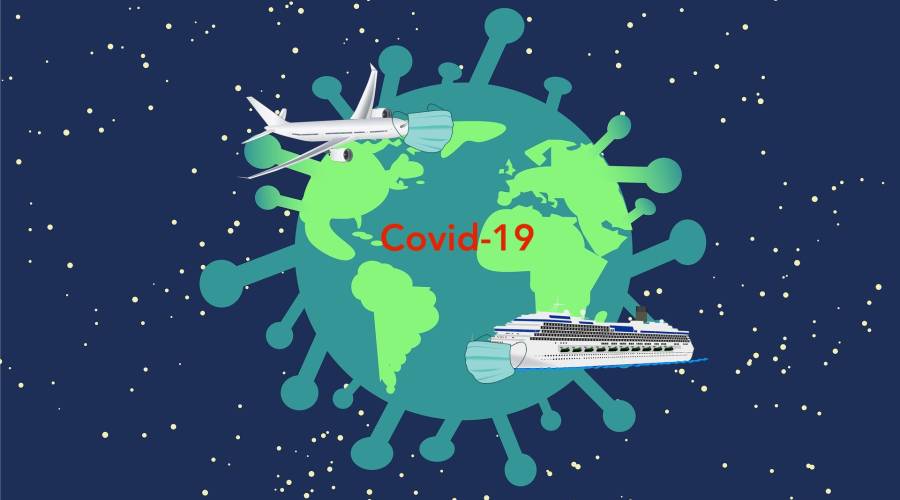
COVID-19 and the Hospitality Industry
With COVID-19 distributed all over the world, global leaders, governments, business people, and industrial businesses concentrate on people, workers, and employee welfare.
What pandemic taught the hospitality industry? Lessons to learn from COVID-19
With its sudden arrival, it provoked people to a different way of life, dragging them to adapt to the current situation with closures. The government's decision to close most businesses due to lock-down, a severe growth in unemployment, a decline in welfare, and an important task for the state and the authorities was on the list of top priorities to do: to reopen closed businesses in the safest, most efficient, and most necessary way possible.
Like the existing public and private enterprises, the industry that suffered the greatest blows and losses during this period was tourism, travel and hospitality. Depriving people of the opportunity to travel, to organize their leisure time effectively, to explore new places, new destinations, with the exception of the those who are allowed to leave the country's borders only when necessary, caused great economic damage in addition to social and psychological reasons.
In the current situation, entrepreneurs who are abandoned from the opportunity to manage the "struggle for survival" and run their business with a superficial strategy and short-term action plan are facing bankruptcy.
As a result of the impact of the global pandemic on the hospitality industry, it was determined what points and areas entrepreneurs and business people should pay attention to. To minimize the impact on human management, staffing and the workforce, eliminate the gaps in the management of independent, non-chain and boutique hotels, putting in place the crisis management, reduction of human interaction with the application of the latest technology, booking through mobile applications and electronic solutions, the need for a one-touch inquiry to the process and operations of air transport and travel were obvious and evident.
Preparation for a pandemic or global crisis should be based on general principles, special structure, mechanism and emergency management, and should be applied in the event of any threat.
Not only the industry, but also the entrepreneurs and the staff experienced the shock effect in the moments that were witnessed. In this situation, it is very important to take smart and appropriate steps, to communicate properly at each level and to eliminate uncertainty. It is no secret that the entrepreneur or manager faces decisions at all levels during different periods, and this can be an important decision that determines not only the future of the business, but also the future of the staff. Because of the global nature of the pandemic, it has forced every business entity to go through this ordeal and face a desperate, tense, complicated situation, and there is no best or right way out of the situation.
The blow to the hospitality industry began with the cessation of both domestic and foreign tourist flows, the closure of borders, and the freezing or minimization of health care services. Although there has been a slight revival in the hospitality industry in regions where mitigation or infection rates are low, most regions and states have extended prohibition, crossed borders and accessing the country only in exceptional cases considering the spread of a new wave of infection and health problems nationwide.
What was the lesson we learned out of the pandemic, and what will be the next stage of transformation from the traditional approach? What innovations, technological solutions, smart rules in human resources management will be applied to the service, hospitality, travel, tourism industry? What moments will not be the same as before and will be remembered as a historical case?
During a crisis, there is a panic, confusion and uncertainty for sure. Because of the limitations of collecting and crowd gathering, the team more often works from home or distance, and virtual communication becomes the primary and vital mean. For this reason, it is important to understand the team, keep them informed, discuss their concern and remain obscure, and listen to ideas and suggestions. Until the end of the pandemic, it will be necessary to predict what the "new normal" situation will be, to act in a planned manner and to adopt new management rules.
The main problems faced by tourism industry during the crisis can be considered as following:
i. Decreased income levels, mass layoffs resulting in complete downtime
ii. Loss of ability to pay wages and special benefits to employees
iii. High fee / interest rates, withholding tax for non-cash payments, transfers, commissions (10-14%).
iv. Import fee, customs fee, property tax, insurance amount, income tax, profit fee, payments to the unemployment fund for the unemployed, payments to the social protection fund, etc.
v. Recruitment of employees through the 3rd party on the basis of TIN for taxation and additional duties, despite working a full-time job, and overtime. As a result, in the event of a crisis, first of all, this layer is dismissed because there are no obligations, insurance coverage, the right to leave.
vi. Application of non-seasonal fees and taxes to seasonal tourism facilities
The hospitality industry should be managed not at the micro level, but at a macro level that is not left out of the attention of the government and an action plan should be implemented carefully. In addition to developing a economic and social support package for small, medium and large business units during the pandemic, it is necessary to ensure the protection of the rights and responsibilities of workforce and full-time staff, prevention of dismissals, as well as compliance with legislation. It is desirable to provide long-term interest-free loans, increase subsidies, manage liquidity, human resources with minimal loss, create social packages and provisions, protect jobs and provide temporary employment during unemployement.






